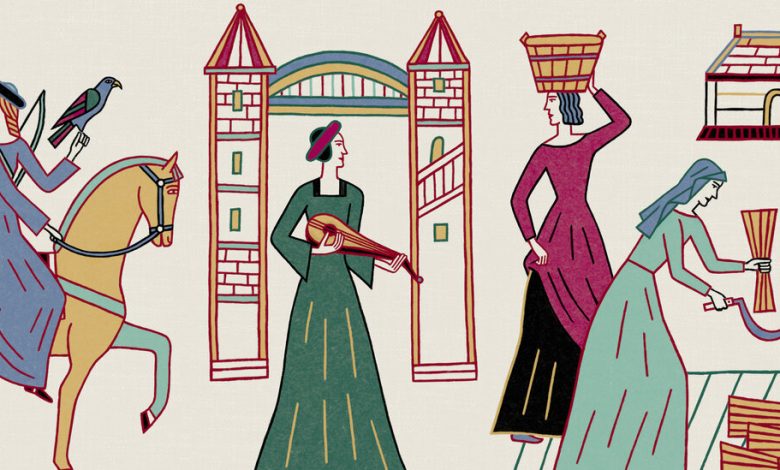In a Novelist’s Hands, a Herstory of England Is Delicious — but Not Sweet

NORMAL WOMEN: 900 Years of Making History, by Philippa Gregory
Twenty-odd years ago Philippa Gregory plucked Anne Boleyn’s sister, Mary, from historical obscurity, gave her a sexy story of her own and helped set off a mania for Tudor fiction.
Since “The Other Boleyn Girl,” Gregory has rescued dozens more ladies from the confinement beds of history and placed them in England’s war rooms. Her heroines are the wives and mothers of important men, but they’re also strategists and power brokers.
“Normal Women” is an expansive, inclusive and elegantly woven nonfiction account of the lives of women in England from the Norman Conquest to the modern day. To describe it as merely a retelling is to undermine a core principle: This is a history of women in England, yes, but it is also a history of England, full stop.
“I wanted to show that murderers and brides, housewives and pirates, whores and weavers, farmers and milliners, female husbands, hermits, the chaste, the jousters, painters, nuns, queens, witches and soldiers” mattered, even if not documented, Gregory writes in her introduction. She worked on the book for a decade.
At more than 500 pages, with extensive endnotes and a 30-page index, “Normal Women” is a behemoth you may be inclined to skim, until you realize you’re actually luxuriating in every word. Some may call this “pop history” and maybe it is, but it’s the pop history of a fevered obsessive.





